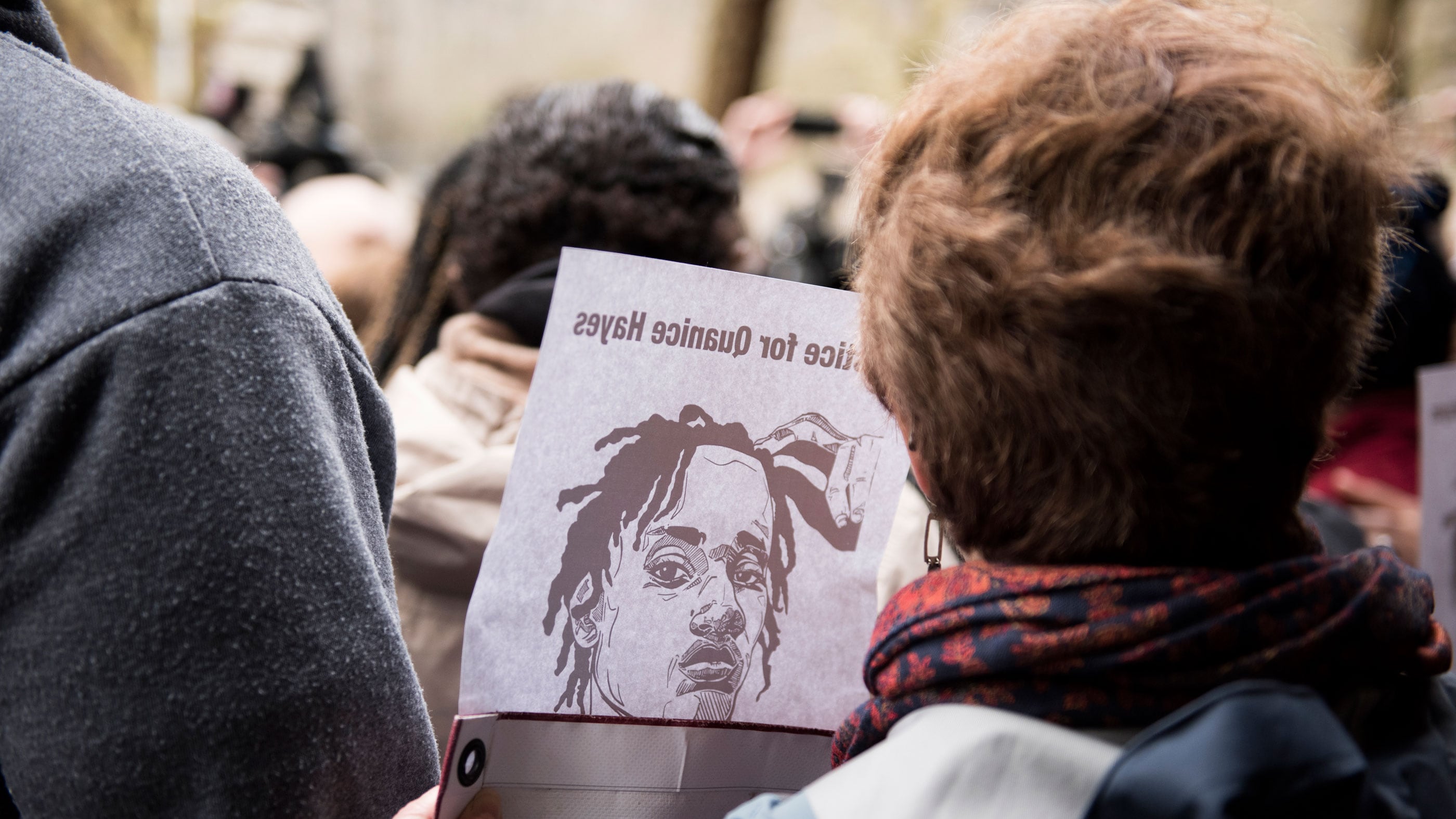On Wednesday, the Portland City Council unanimously approved a $1.5 million settlement and $595,081 in attorneys' fees to be paid to the family of Quanice Hayes, a 17-year-old shot and killed Feb. 9, 2017, by Portland Police Officer Andrew Hearst.
The approval follows an agreement reached last month between the city and the Hayes family, which filed a wrongful death lawsuit in June 2018.
Some members of the Hayes family spoke during the meeting. Quanice's uncle Steven Hayes said that, in the four years since his nephew's death, he had hoped to see change within the city. He pointed to the fact that the officer who shot Hayes is still employed by the Portland Police Bureau.
"Something's missing. Something's wrong with our policy," he said. "I don't believe Officer Hearst should be still carrying a weapon…. There was no accountability."
Hayes also described the anguish he experienced listening to Hearst's deposition.
"[It was] one of the worst things I've ever been through in my entire life. I was deployed to Iraq a couple of times," Hayes said. "That was one of the worst things I had to endure with this man not showing any remorse for killing one of my family members."
Donna Hayes, Quanice's grandmother, told a story about how, when Quanice got his first job, the first thing he did was take his sibling to get ice cream.
"This would have been this boy still—if he was alive today—still purchasing things for his siblings, giving his mother a little bit of money to help her out, whatever was needed in the house. With him gone, this is missing," Donna Hayes said. "There's no amount of money that can bring him back. I will always have this pain in my heart."
All four city commissioners, as well as Mayor Ted Wheeler, voted to approve the settlement.
Commissioner Jo Ann Hardesty, a longtime advocate for police reform, highlighted the significance of several events this week that coincide with Wednesday's council meeting. On Tuesday, jury selection began in the trial of Derek Chauvin—the former Minneapolis police officer charged with second-degree murder in the death of George Floyd, and Saturday will mark one year since the death of Breonna Taylor, who was shot and killed by police in Louisville, Ky., during a botched raid.
"What is happening today is not justice. It's not accountability. This decision does nothing to fix our broken system," Hardesty said. "What today should make us realize is that the Portland Police Bureau is not an exception to a deeply systematic, racist, toxic culture with brutality that we see in police departments all across the country."
Commissioner Carmen Rubio voted to approve the settlement, but added that it "could never, ever equate with justice."
"We're settling this case without accountability for the officer, and with no assurances for our Black community members that they are any safer since Quanice was killed," Rubio said. "This ugly history of violence—we can't erase it, but we can start walking our talk and living up to our values that we continuously say we believe in."
Commissioner Mingus Mapps said during the meeting that he hopes public safety in Portland will be "one which rejects a militarized approach," and that he wants the City Council to further consider requiring police to wear body cameras. He also pointed to his own experience as a Black father.
"The death of a child from police contact is the ultimate nightmare of every Black parent," Mapps said Wednesday. "And as a Black dad, I know this deep in my bones."

